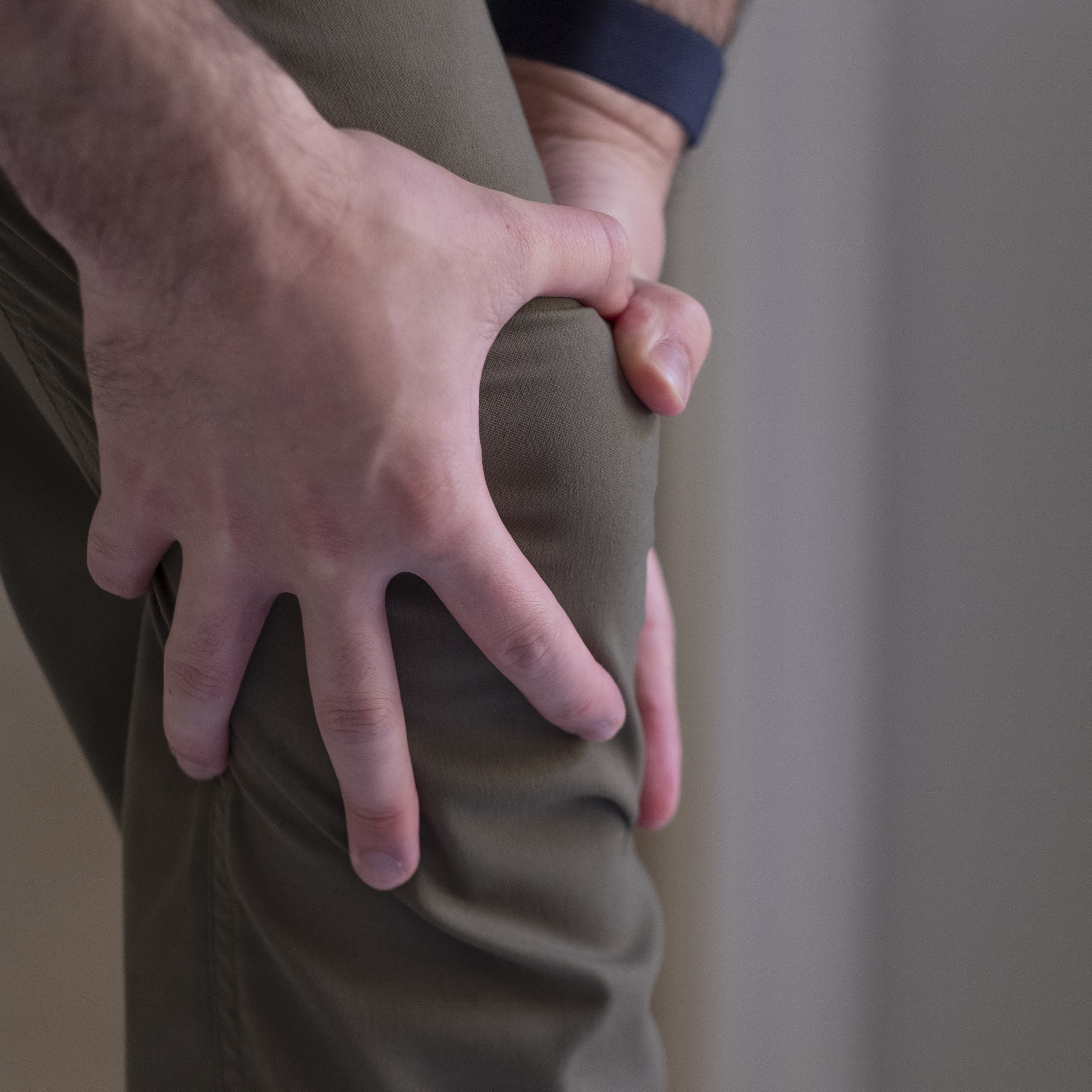Why Your Joints May Hurt During Rainy Weather

December 20, 2021
Researchers haven’t been able to definitively confirm a cause-and-effect connection. Some studies suggest that the weather may impact joint pain, while other studies say that there’s no link.
What may cause weather-related joint pain
Experts believe that joints may ache among affected people because of changes in barometric pressure, which occur during weather system changes. Before it rains, barometric pressure tends to decrease.
When this happens, there’s less air pressure exerting itself on your body, which may allow muscles, tendons and other tissue surrounding the joints to expand. The expansion may crowd the joints, putting extra pressure on them, which may lead to pain.
“People with arthritis or those who experience chronic joint pain may be more sensitive to this type of discomfort, which is caused by tissue taking up more space than usual and overburdening the joints,” says hip and knee orthopedic surgeon, Robert W. Borzio, M.D.
Once a weather system moves through, the barometric pressure readjusts, and joint pain usually dissipates.
Other reasons why you may experience weather-related joint pain
You may do things differently on rainy or cold days, which may contribute to joint pain. For example:
- You may be less physically active, and sitting around idly may make your muscles and joints stiffen up, causing pain.
- The gloomy weather may sour your mood, causing you to focus on negatives, including joint pain.
- You may have come to expect joint pain during rainy or cold weather, so you may be on the outlook for any twinges and discomfort that might not otherwise cause concern.
Ways to minimize weather-related joint pain
Whether or not researchers can prove that weather-related changes cause joint pain, you’ll want to experience relief if you’re feeling joint pain on a cold or rainy day.
Try these strategies to ward off or reduce weather-related joint pain:
- Exercise regularly. Being physically active helps to strengthen your muscles and bones, which helps to take pressure off of your joints.
- Keep moving. Find ways to get your usual activity in, even if you can’t walk around the block. Consider walking at the mall or using a treadmill.
- Stretch before moving. Do a few stretches before you do any physical activity. You’ll warm up your muscles and improve your flexibility, which is good for your joints.
- Keep your weight in a healthy range. Lose weight if you’re overweight, or maintain your current weight if it’s in the healthy range. Carrying around extra weight puts additional strain on your joints, including your knees and hips, which may make weather-related joint pain feel more intense.
- Use heat before activity and cold after. A heating pad may help to relax your muscles and loosen you up before activity and cold afterward can help with swelling and inflammation.
- Take over-the-counter anti-inflammatory medication. Medications like ibuprofen help to reduce pain and lower inflammation, which should help you to start feeling better.
- Try to maintain a positive outlook. Don’t let a gray, miserable day bring down your mood. When you feel better emotionally, you may also feel better physically.
Next Steps & Resources:
- Meet our source: Robert W. Borzio, M.D.
- To make an appointment with Dr. Borzio, a doctor near you, call 800-822-8905 or visit our website.
- Learn how our orthopedic experts are committed to helping you maintain optimal health, get moving and live life to the fullest at HMHforU.org/Ortho.
The material provided through Healthier You is intended to be used as general information only and should not replace the advice of your physician. Always consult your physician for individual care.





